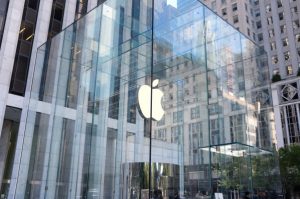
Facebook is facing exposure to billions of dollars in potential damages as a federal appeals court on Thursday rejected Facebook’s arguments to halt a class action lawsuit claiming it illegally collected and stored the biometric data of millions of users.
The class action lawsuit has been working its way through the courts since 2015, when Illinois Facebook users sued the company for alleged violations of the state’s Biometric Information Privacy Act by automatically collecting and identifying people in photographs posted to the service.
Now, thanks to an unanimous decision from the 9th U.S. Circuit Court of Appeals in San Francisco, the lawsuit can proceed.
The most significant language from the decision from the circuit court seems to be this:
We conclude that the development of face template using facial-recognition technology without consent (as alleged here) invades an individual’s private affairs and concrete interests. Similar conduct is actionable at common law.
The American Civil Liberties Union came out in favor of the court’s ruling.
“This decision is a strong recognition of the dangers of unfettered use of face surveillance technology,” said Nathan Freed Wessler, staff attorney with the ACLU Speech, Privacy, and Technology Project, in a statement. “The capability to instantaneously identify and track people based on their faces raises chilling potential for privacy violations at an unprecedented scale. Both corporations and the government are now on notice that this technology poses unique risks to people’s privacy and safety.”
As April Glaser noted in “Slate”, Facebook already may have the world’s largest database of faces, and that’s something that should concern regulators and privacy advocates.
“Facebook wants to be able to certify identity in a variety of areas of life just as it has been trying to corner the market on identify verification on the web,” Siva Vaidhyanathan told Slate in an interview. “The payoff for Facebook is to have a bigger and broader sense of everybody’s preferences, both individually and collectively. That helps it not only target ads but target and develop services, too.”
That could apply to facial recognition technologies as well. Facebook, thankfully, doesn’t sell its facial recognition data to other people, but it does allow companies to use its data to target certain populations. It also allows people to use its information for research and to develop new services that could target Facebooks billion-strong population of users.
As our own Josh Constine noted in an article about the company’s planned cryptocurrency wallet, the developer community poses as much of a risk to how Facebook’s products and services are used and abused as Facebook itself.
Facebook has said that it plans to appeal the decision. “We have always disclosed our use of face recognition technology and that people can turn it on or off at any time,” a spokesman said in an email to “Reuters”.
Now, the lawsuit will go back to the court of U.S. District Judge James Donato in San Francisco who approved the class action lawsuit last April for a possible trial.
Under the privacy law in Illinois, negligent violations could be subject to damages of up to $1,000 and intentional violations of privacy are subject to up to $5,000 in penalties. For the potential 7 million Facebook users that could be included in the lawsuit those figures could amount to real money.
“BIPA’s innovative protections for biometric information are now enforceable in federal court,” added Rebecca Glenberg, senior staff attorney at the ACLU of Illinois. “If a corporation violates a statute by taking your personal information without your consent, you do not have to wait until your data is stolen or misused to go to court. As our General Assembly understood when it enacted BIPA, a strong enforcement mechanism is crucial to hold companies accountable when they violate our privacy laws. Corporations that misuse Illinoisans sensitive biometric data now do so at their own peril.”
These civil damages could come on top of fines that Facebook has already paid to the U.S. government for violating its agreement with the Federal Trade Commission over its handling of private user data. That resulted in one of the single largest penalties levied against a U.S. technology company. Facebook is potentially on the hook for a $5 billion payout to the U.S. government. That penalty is still subject to approval by the Justice Department.



